
CORONAVIRUS DISEASE COVID 19 NEWS AND RESEARCH
Latest Coronavirus Disease COVID 19 News and Research
Prominent pharmacologist calls for new approach to treat COVID-19
A prominent Australian pharmacologist has called for a new approach to treating COVID-19 as hopes fade of finding an effective vaccine or antiviral before the end of the year.
Selective statins may reduce SARS-CoV-2 cell entry and inhibit infection
Statins are a class of drugs often used to control high cholesterol levels in obesity. Now, a study published on the preprint server medRxiv* in July 2020 suggests that statins do not aggravate the risk of COVID-19 infection and may have a small beneficial effect in some cases.
How do international travel bans effect local COVID-19 epidemics?
Now, a new study published in July 2020 on the preprint server medRxiv* shows that the latter is likely to cause 90% or more of local epidemics and that stringent bans on international travelers are therefore unlikely to affect the course of the local outbreak significantly.
Massive study looks at history of COVID-19 in Catalonia, Spain
A massive and important new study published on the preprint server medRxiv* in July 2020 sets out a comprehensive picture of the COVID-19 outbreak in Catalonia, Spain. It fills in a void in the current research, with its grand scale and detailed analysis.
New study offers guidelines on elective orthopedic surgery
Since the start of the COVID-19 pandemic, thousands of Americans have had to delay recommended but elective orthopedic surgical procedures, such as joint replacement surgery or knee arthroscopy.
Children with MIS-C have different antibody responses than adults with COVID-19
A new study published on the preprint medRxiv in July 2020 reveals that children with the condition Multisystem Inflammatory Syndrome in Children (MIS-C) have a distinctly different pattern of antibody generation compared to adults with COVID-19 disease.
Evidence of SARS-CoV-2 placental infection in mild COVID-19
Now, a new study published on the preprint server medRxiv* in July 2020 reveals evidence of placental infection and hypoxia, despite the lack of serious symptoms in the mother.
Strategies to flatten the COVID-19 curve
The first case of the novel coronavirus, COVID-19, in the United States was in late January. By mid-March, "social distancing" had entered the public lexicon.
Likelihood of SARS-CoV-2 transmission may depend on blood type of spreader and recipient
A modeling study by Dr. Peter Ellis from the University of Kent indicates that ABO incompatibility between infected patients and susceptible individuals may actually decrease the transmissibility of severe acute respiratory syndrome coronavirus 2 (SARS-CoV-2) by 60% or more. His detailed investigation of such "ABO-interference" can be found on the medRxiv preprint server.
Latent tuberculosis infection in European countries closely correlates with COVID-19 infection
In a recent medRxiv preprint research paper, scientists from India analyzed twenty European countries and showed that the prevalence of exposure to Mycobacterium spp. (which includes BCG vaccine) is consistently negatively correlated with coronavirus disease (COVID-19) infections.
Study identifies factors associated with death in critically ill COVID-19 patients
More than 3 million people in the United States have been infected with COVID-19 and more than 130,000 have died. More people have died of COVID-19 in the U.S. than in any other country, but few studies offer national data on the factors that may contribute to outcomes for critically ill patients.
Earlier 'Test, Trace, Isolate' on Isle of Wight reduced COVID-19 incidence and R0
Researchers in the UK report that the incidence of new coronavirus disease 2019 (COVID-19) cases fell in the Isle of Wight following the launch of a new “Test, Trace, Isolate (TTI)” program on May 5th that included the option of using an NHS Smartphone app.
Model suggests U.S. opened up too early as COVID-19 ran wild
A new modeling framework designed to track the transmission of severe acute respiratory syndrome coronavirus (SARS-CoV-2) in the U.S. suggests that the coronavirus disease 2019 (COVID-19) epidemic was not under control by the end of May - just before containment measures were relaxed.
New immune profiles could help predict disease trajectory in severe COVID-19 patients
Researchers from the Penn Institute of Immunology discovered three distinct immune responses to the SARS-CoV2 infection that could help predict the trajectory of disease in severe COVID-19 patients and may ultimately inform how to best treat them.
Study explains why fetuses and newborns are mostly spared by COVID-19
Amid the coronavirus pandemic, it has been previously suggested that the most vulnerable individuals to developing severe coronavirus disease (COVID-19) include the elderly, those with underlying health conditions, and those who have weakened immune systems.
Moderna vaccine induces robust immune response against SARS-CoV-2
The race to develop an effective vaccine against the severe acute respiratory syndrome coronavirus 2 (SARS-CoV-2) is on, and one of the potential candidates shows promise in inducing an immune response.
Novel surface coating inactivates SARS-CoV-2 in one hour
Door knobs, light switches, shopping carts. Fear runs rampant nowadays when it comes to touching common surfaces because of the rapid spread of the coronavirus.
New mass spectrometry-based test detects coronavirus in gargle solutions of patients
Pharmacists at Martin Luther University Halle-Wittenberg have succeeded in detecting small amounts of coronavirus SARS-CoV-2 using mass spectrometry.
Common FDA-approved drug may be a powerful tool in fighting COVID-19
A common drug, already approved by the Food and Drug Administration, may also be a powerful tool in fighting COVID-19, according to research published this week in Antiviral Research.
Nanotechnology plays major role in COVID-19 vaccine development
From mRNA vaccines entering clinical trials, to peptide-based vaccines and using molecular farming to scale vaccine production, the COVID-19 pandemic is pushing new and emerging nanotechnologies into the frontlines and the headlines.
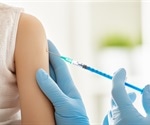
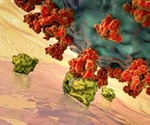
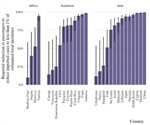
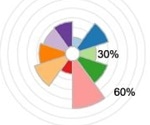
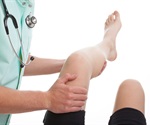
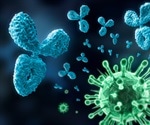
_e081922bd08c4976b0ec52b03e525f5a-150x125.jpg)

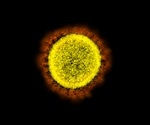
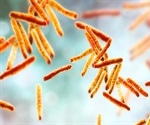

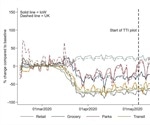


_414b4341a30447ecaa698268fda294cf-150x125.jpg)
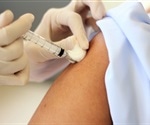
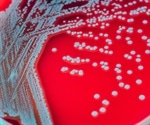
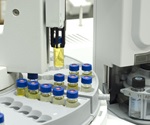

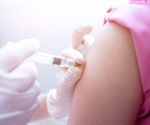
































No hay comentarios:
Publicar un comentario